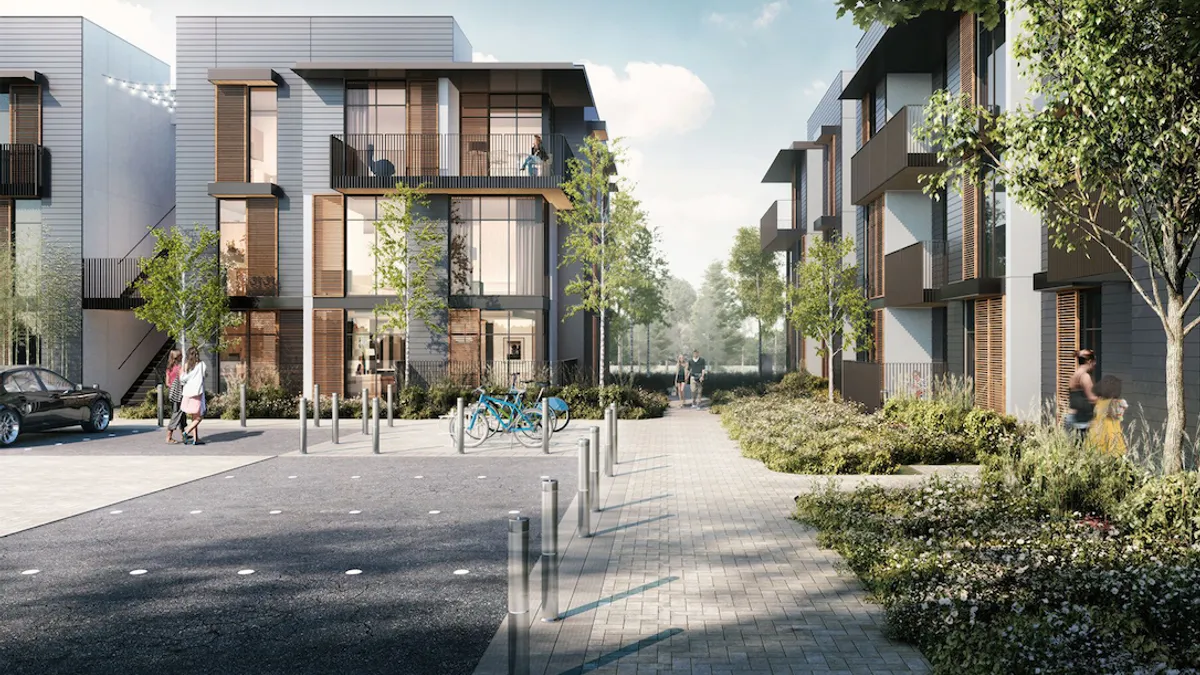Dive Brief:
-
Prefab builder FullStack Modular has raised $6 million in Series A funding led by McCourt Global and real estate investors including Lawrence Benenson, Lloyd Goldman and Jonathan Grunzweig.
-
The company plans to use the funds to increase production at its 100,000-square-foot design and construction facility in Brooklyn, NY’s Navy Yard. The company also said it would consider expanding to the West Coast and internationally.
-
FullStack offers turnkey modular construction for residential, hotel and student housing applications, with the goal of reducing construction waste and limiting disruptions in the field by fabricating components in a factory for assembly onsite.
Dive Insight:
FullStack was borne from assets of Forest City Ratner Companies’ FC Modular business unit. The Cleveland–based national developer sold the division to FullStack last fall after wrapping up construction on 461 Dean, a 32-story, 363-unit residential high-rise in Brooklyn, NY. The deal, Curbed reported, included FC’s technology, Navy Yard lease and fabrication equipment.
At 461 Dean, what began as a partnership between Forest City and Skanska to construct a modular high-rise dissolved amid construction delays and subsequent litigation, which drew the project’s timeline out to four years and putting it among the city’s longest-running projects. Forest City, through FC Modular, took over and completed the project as a modular building. However, although Forest City had planned to construct all 15 buildings slated for the 22-acre Pacific Park Brooklyn development, currently home to 461 Dean, the remaining buildings will be constructed using conventional methods.
Today, FullStack is led by Roger Krulak, a former Forest City executive. He told Construction Dive late last year that one driver behind the difficulties with 461 Dean was establishing partnerships between "two large, entrenched companies attempting to solve a startup situation," which in this case meant implementing a still-novel construction method.
Krulak’s new company joins other modular builders whose work is gaining traction among conventional construction projects for its ability to quickly replicate floor plans in applications that contain ample repetition, such as healthcare, multifamily and hotels. Investments like those in Forest City suggest the category will continue to build steam.
In Seattle, another project currently on the boards, 1800 Terry, will use offsite, modular construction techniques to deliver 270 residential units and 7,046 square feet of retail space. And in New York City, a new high-rise hotel will feature 210 modules fabricated by Polcom Modular, in Poland, and assembled onsite in the U.S.















